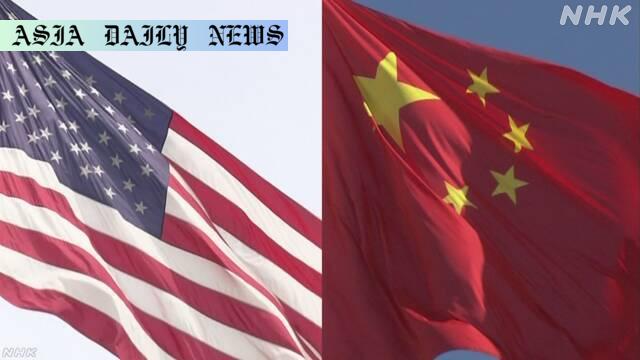Tariffs: US President Donald Trump repeats claims of ongoing US-China trade talks, which Beijing officials have dismissed as ‘fake news.’
US President Donald Trump claims ongoing tariff talks with China.
Chinese officials deny any such discussions, labeling it ‘fake news.’
Global finance leaders warn of economic uncertainty from tariff policies.
The G20 highlighted trade tensions affecting the global economy’s stability.

Trump’s Assertion of US-China Tariff Talks
US President Donald Trump recently reiterated his claim that the United States and China are engaging in discussions over the ongoing trade tariff situation. Speaking to reporters at the White House, Trump stated that a meeting had taken place earlier in the day, though he chose not to disclose specific details about who attended or what was discussed. This claim was made amidst increasing skepticism from experts and outright denial from Chinese officials, who have labeled the assertions as “fake news.”
On the other end, officials in Beijing have firmly refuted these claims, stating unequivocally that no such negotiations or meetings have been held. This dispute has heightened tensions at a time when the global economy is under threat from significant tariff-related volatility. The war of words between the two countries raises questions about their ability to reach an amicable resolution to their ongoing trade dispute.
Impact on Global Economic Stability
The tariff conflict between the United States and China has far-reaching consequences for the global economy. At a recent two-day meeting in Washington, finance ministers and central bankers from the Group of 20 nations expressed concerns about the economic uncertainty triggered by these tariffs. Their discussions, initially focused on issues such as climate change and aid to developing nations, were overshadowed by the looming trade tensions.
Experts warn that prolonged tariff disputes could disrupt international supply chains, lead to price increases on goods, and slow down economic growth, particularly in developing nations that rely heavily on trade. These factors highlight the importance of collaborative efforts by major economies to address the mounting financial uncertainty.
The G20’s Call for Coordinated Action
The G20 emphasized the need for “immediate and coordinated efforts” to mitigate market volatility and maintain the resilience of the global financial system. While the current financial structure remains robust, the group noted that escalating tensions could potentially unravel its stability. The call for collective measures underscores the interconnectedness of modern global economies and the critical role that government policies play in fostering stability.
Despite these warnings, the domestic politics of major economies like the United States often dictate trade strategies that prioritize short-term gains over long-term stability. This approach can further complicate resolutions to conflicts, such as the ongoing US-China trade war. Moving forward, governments will need to navigate complex political landscapes to foster a cooperative atmosphere in addressing trade disputes.
Commentary
Understanding the US-China Trade Tensions
The trade dispute between the United States and China represents one of the most significant challenges in global economics today. US President Donald Trump has repeatedly asserted that tough policies on tariffs are necessary to address what he perceives as unfair trade practices by China. This stance, while controversial, highlights the administration’s intent to rebalance trade relations and protect American industries. However, the lack of concrete evidence supporting Trump’s claims of ongoing US-China trade talks raises concerns about the credibility and transparency of such statements.
On the other side, China’s leadership has firmly rejected the accusations and dismissed claims of recent negotiations. This denial not only undermines Trump’s narrative but also reflects how deeply entrenched the conflict has become. Both nations have adopted firm stances, making it increasingly difficult to envision a swift resolution without meaningful dialogue and compromise.
The Ripple Effects on Global Finance
The ramifications of US-China trade tensions extend far beyond their national borders. Economies across the globe, particularly those heavily reliant on trade, have felt the strain of rising tariffs. The uncertainty surrounding the trade war has led to fluctuations in global markets, impacting businesses, consumers, and governments alike. Developing nations are especially vulnerable, as they often depend on stable trade relations with both the US and China to sustain economic growth.
In this context, the warnings from finance ministers and central bankers are particularly timely. Their call for “immediate and coordinated efforts” serves as a reminder of the shared responsibility to maintain global financial stability. Yet, achieving this goal requires overcoming significant political and ideological barriers.
The Path Forward
Resolving the US-China trade dispute will require a multifaceted approach, involving not just these two economic powerhouses but other international stakeholders as well. Constructive dialogue, guided by a shared commitment to mutual benefit, remains the most effective way to de-escalate tensions and foster a stable economic environment. However, whether such an outcome is achievable in the near term remains uncertain.
As the situation evolves, it is imperative for global leaders to prioritize long-term stability over short-term political gains. The stakes are high, and the consequences of failure could be severe. By working together, nations can pave the way for a more resilient and equitable global economic system.


